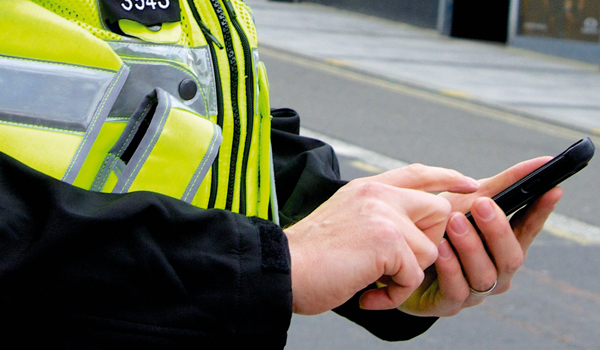Turning the tables on traffickers
More people in the UK are affected by human trafficking than by terrorism. Joanne Taylor explains how joined-up intelligence can help police tackle this global crime.

More people in the UK are affected by human trafficking than by terrorism. Joanne Taylor explains how joined-up intelligence can help police tackle this global crime.
Human trafficking is thought to be the fastest-growing criminal activity in the world, involving millions of people annually and generating an annual turnover of billions of pounds. The United Nations Crime-Fighting office reported recently that 2.4 million people across the globe are victims of human trafficking at any one time, while the UN Office on Drugs and Crime describes it as a global enterprise worth in the region of US$32 billion.
The vast majority of human trafficking in the UK and much of Western Europe is victim-driven (where the victims pay to be brought into a country illegally). The other significant sub-set is slavery where an individual is captured and forced into trafficking against their will. Estimates suggest that there are currently at least 10,000 slaves in the UK alone. The actual figure may be even higher as there is common misconception that only foreign nationals are trafficked, and only into the UK.
So human trafficking is not just a heinous crime, it is highly prevalent too. Despite this and despite the universal condemnation it attracts, there is little evidence that the UKs criminal justice system is dealing with the problem effectively. Currently much of the judicial system has no involvement or responsibility for human trafficking and does not deploy resources in a coordinated manner to address it. Indeed, human trafficking is currently really only dealt with as a criminal matter. Yet it is clearly a problem that all parts of the criminal justice system should be taking increasingly seriously.
Human trafficking is big business and it is primarily driven by large-scale organised crime. Despite this, we have so far not seen with respect to human trafficking, the kinds of large scale coordinated response efforts like that deployed to address terrorism or cybercrime. The efforts and budgets put aside to address what are viewed as serious threats to the UK seem somehow out of proportion with the lack of resources dedicated to human trafficking. Cybercrime, for example, has dedicated agencies set up to address it together with a £650 million budget. Is the argument that these types of crime somehow pose a more severe threat to UK plc than human trafficking, or put more citizens at risk?
One could argue that trafficking is one of the largest illegal industries in the UK and affects a much broader range of individuals directly than terrorism, for example, thereby warranting the kind of centralised coordinated, and well-funded counter measures deployed on other comparable criminal activities.
The new National Crime Agency, on establishment in 2013, will reportedly have a key role in building on the existing arrangements for tackling human trafficking. The new agency is expected to target the organised criminal gangs involved in human trafficking and extend the counter measures in place today. Unless a completely new approach to human trafficking is adopted, however, it may be more of a case of rebadging and re-organising in other words more of a cosmetic change than a real attempt to get to grips with the problem.
Scoping the challenge
Unfortunately, while it is increasingly high-profile in the media and widely condemned in all civilised countries, human trafficking is a difficult problem to combat. The crime is typically covert and victims are notoriously unwilling to come forward with information. Equally, traffickers are employed and coordinated by serious and organised criminal networks, meaning that they are normally well-funded and organised to avoid detection.
Today, in many countries, the number of traffickers caught and convicted remains low due to lack of training of law enforcement agency officials, corruption and poor anti-trafficking counter measures.
So how can this problem be effectively addressed an



